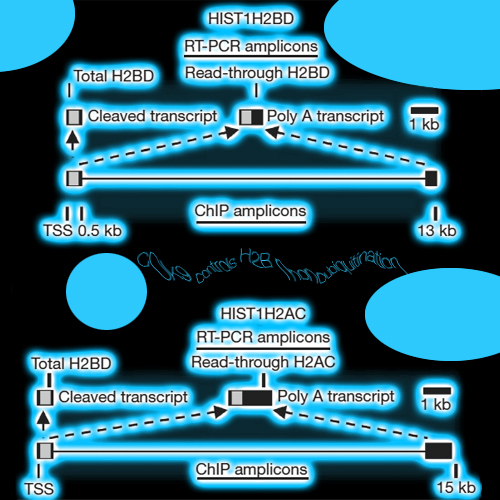CDK9 directs H2B monoubiquitination and controls replication-dependent histone mRNA 3'-end processing
03-Jul-2009
EMBO reports, 2009, doi:10.1038/embor.2009.108, published on 03.07.2009
EMBO reports, online article
EMBO reports, online article
Post-translational histone modifications have essential roles in controlling nuclear processes; however, the specific mechanisms regulating these modifications and their combinatorial activities remain elusive. Cyclin-dependent kinase 9 (CDK9) regulates gene expression by phosphorylating transcriptional regulatory proteins, including the RNA polymerase II carboxy-terminal domain. Here, we show that CDK9 activity is essential for maintaining global and gene-associated levels of histone H2B monoubiquitination (H2Bub1). Furthermore, CDK9 activity and H2Bub1 help to maintain correct replication-dependent histone messenger RNA (mRNA) 30-end processing. CDK9 knockdown consistently resulted in inefficient recognition of the correct mRNA 30-end cleavage site and led to increased read-through of RNA polymerase II to an alternative downstream polyadenylation signal. Thus, CDK9 acts to integrate phosphorylation during transcription with chromatin modifications to control co-transcriptional histone mRNA processing.











